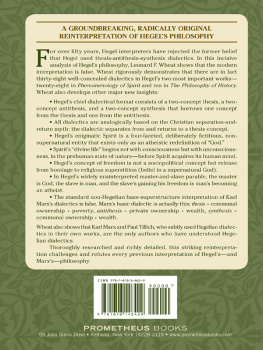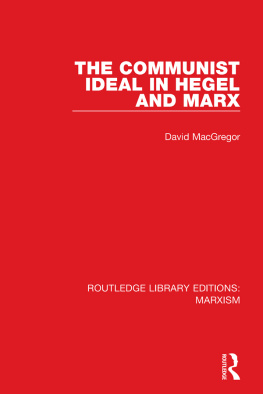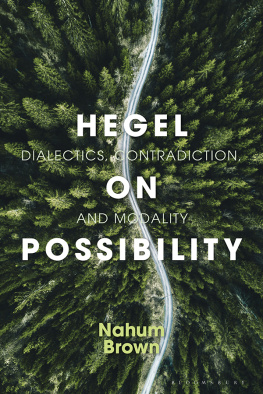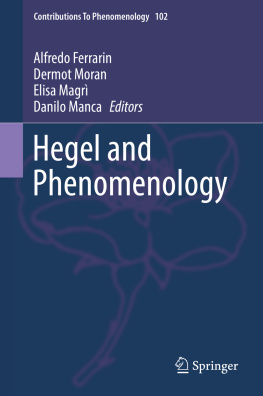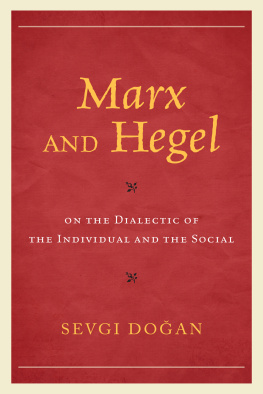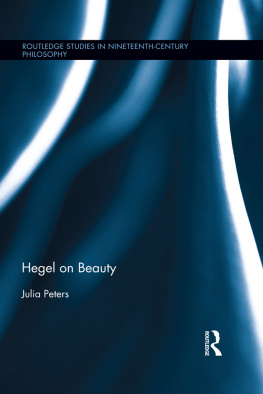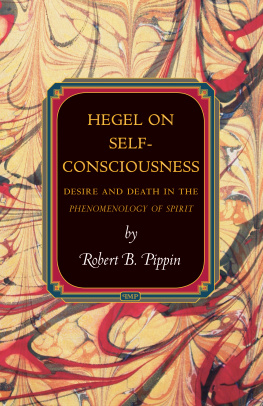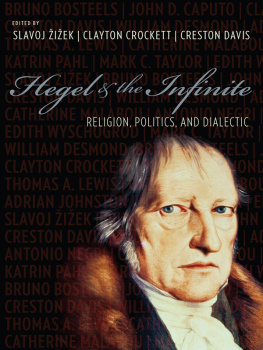
Published 2012 by Prometheus Books
Hegel's Undiscovered Thesis-Antithesis-Synthesis Dialectics: What Only Marx And Tillich Understood. Copyright 2012 by Leonard F. Wheat. All rights reserved. No part of this publication may be reproduced, stored in a retrieval system, or transmitted in any form or by any means, digital, electronic, mechanical, photocopying, recording, or otherwise, or conveyed via the Internet or a website without prior written permission of the publisher, except in the case of brief quotations embodied in critical articles and reviews.
Cover background pattern 2004 Dover Publications
Cover design by Grace M. Conti-Zilsberger
Inquiries should be addressed to
Prometheus Books
59 John Glenn Drive
Amherst, New York 142282119
VOICE: 7166910133
FAX: 7166910137
WWW.PROMETHEUSBOOKS.COM
16 15 14 13 12 5 4 3 2 1
Library of Congress Cataloging-in-Publication Data
Wheat, Leonard F., 1931
Hegel's undiscovered thesis-antithesis-synthesis dialectics : what only Marx and Tillich understood / by Leonard F. Wheat.
p. cm.
Includes bibliographical references and index.
ISBN 978-1-61614-642-9 (cloth : alk. paper)
ISBN 978-1-61614-643-6 (ebook)
1. Hegel, Georg Wilhelm Friedrich, 17701831. 2. Dialectic. 3. Hegel, Georg Wilhelm Friedrich, 17701831. Phenomenologie des Geistes. 4. Hegel, Georg Wilhelm Friedrich, 17701831. Einleitung in die Geschichte der Philosophie. 5. Marx, Karl, 18181883. 6. Tillich, Paul, 18861965. I. Title.
B2948.W468 2012
193--dc23
2012025638
Printed in the United States of America on acid-free paper

The genesis of this book dates back to 1956, when I was preparing for my doctoral oral exams at Harvard. I was scared to death that I would be asked to give an example of one of Hegel's dialectics. Having searched in every available textbook and having found nothing but the usual abstract descriptions of thesis, antithesis, and synthesis, I felt helpless. Fortunately, nobody asked the dreaded question. And, as I now realize, I needn't have worried: no potential interrogatorthis includes the noted professor who taught the course I took in medieval and post-medieval political theorycould have answered it either. In fact, although I didn't find this out until fifty years later, the year I got my degree (1958) was the year Gustav Mueller wrote his revolutionary, and until now widely endorsed, article declaring that the formerly universal belief that Hegel used thesis-antithesis-synthesis dialectics is just a legend.
A second graduate school development initiated a slow train of events that would lead me to an understanding of Hegel. Two of my friends were auditing a course taught in Harvard's Divinity School by Paul Tillich, the noted Protestant theologian who was one of only five faculty members honored with the top-of-the-line title University Professor. My friends were baffled by Tillich's abstruse language and impenetrable concept of God, and they were surprised by his negative attitudes toward a wide range of Christian beliefs. Tillich's liberalism piqued my curiosity and stuck in my mind. There it sat for a half dozen or more years.
Then one day, while browsing through some publisher's closeout books on sale, I came across a copy of Walter Kaufmann's The Faith of a Heretic. I bought it. In it I found Kaufmann attacking Tillich for using ancient formulations of belief to express his own lack of belief. Although Kaufmann had no idea what Tillich meant in calling God being-itself, Kaufmann clearly (and correctly, as I later discovered) saw Tillich as an atheist who was reinterpreting every doctrine of Christian mythology to give it nonsupernatural content.
Now my curiosity was really piqued. I decided to gain a firsthand acquaintance with Tillich's thought. An arbitrary but lucky choice from among Tillich's many popular-style books led to my reading The Courage to Be. It quickly became apparent that Tillich was indeed hostile to Christian supernaturalismthe afterlife, divine moral codes, all the other contents of religious tradition, and the ultimate concern of Christians (obviously God). Then the bombshell: the negation of the negation. My academic background in political science and economics enabled me to instantly recognize those words as Marx's phrase for dialectical synthesisspecifically, for the replacement of capitalism (the negation, or antithesis, of feudalism) by communism. (I didn't learn until much later that negation of the negation was first used by Hegel, from whom Marx borrowed it.) I now knew that Tillich was practicing dialectics. And three pages later, when Tillich spoke of the God above God, it was apparent that he had constructed a hidden dialectic moving from (1) a thesis of Yes to God and to the supernatural in general to (2) an antithesis of No to God and to the supernatural in general to (3) a synthesis that combines Yes to God with No to the supernatural. The dialectic thus moved from theism (Yes, affirmation) to atheism (No, the negation of the Yes) to espousal of a nonsupernatural God (a higher Yes, the negation of the No), soon rephrased by Tillich as the God above the God of theism. The question became: what is this cryptically described God above the God of theism?
I read more books, both by and about Tillich. It didn't take long to figure out that the God above God was humanity. The evidence came from many directions and included two other dialectics. One was (1) thesis: God (the believer's source of wisdom), (2) antithesis: man (the atheist's source of wisdom), and (3) synthesis: God = man. The second dialectic was (1) thesis: revelation (the product of God), (2) antithesis: reason (the product of man), and (3) synthesis: revelation = reason (the product of God = the product of man, which means God is man). An especially telling piece of evidence was Tillich's insistence that the norm for a systematic theology should be Jesus as the Christthe Jesus of mythology, contrasted with the real historical Jesus. According to Christian theology, cited by Tillich, Jesus as the Christ was fully God and fully man, not half God and half man. Only if God is humanity is that possible.
Reading the books about Tillich, I soon realized that the many authors who had written books or commentaries supposedly explaining Tillich's thought recognized neither Tillich's use of Hegelian dialectics nor the identity of the God above God. Tillich was variously interpreted as a theist, a panentheist, a pantheist, and a mystic. Many of those who considered Tillich a theist seemed to think the God above God was merely nonanthropomorphican amorphous spirit, not a person with arms and legs who sits on a throne in heaven, not Genesis's anthropomorphic prototype of whom man is the physical image. Others apparently thought the God above God was just friendlier and more loving than the nasty, punitive, homicidal Old Testament God, supposedly the God of theism. Only Kaufmann and Alasdair MacIntyre recognized Tillich's unqualified antisupernaturalism.
I decided that another book about Tillich was needed. So I proceeded with the necessary research. I poured over the three volumes of Tillich's Systematic Theology, read all the rest of Tillich's books and Robert Tucker's Philosophy and Myth in Karl Marx, and struggled with Hegel's Phenomenology of Mind (the Baillie translation). Tucker's book familiarized me with Hegel's and Marx's concepts of self-alienation, or self-estrangement, and thereby enabled me to recognize Tillichian self-estrangement and reconciliation. Tillich's books, in turn, clarified many of Hegel's ideas, most notably (
Next page
